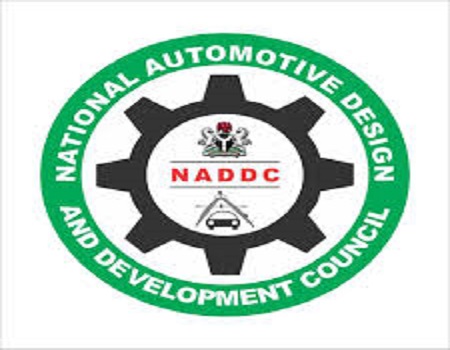
Since 2020, the Federal government through National Automotive Design and Development Council (NADDC) has been making efforts to establish a Vehicle Financing Scheme in order to enable Nigerian purchase brand new vehicles.
In 2019, the former Director General of NADDC, Jelani Aliyu said Federal government approved the sum of N5 billion to be injected into the Trust Fund in a bid to provide money for soft loans at 6 percent to 8 percent interest rate and a spread of many years payment plan for Nigerian citizens as means of building the country’s capacity to purchase new and made in Nigerian vehicles.

Jelani, who spoke at the Commerce and Industry Correspondents Association of Nigeria (CICAN) conference in Abuja, revealed that the N5 billion was approved for the takeoff of the financing scheme to boost local production of vehicles in the country.
He said the scheme was to commence service in early 2020 and ”will be available only for made in Nigeria vehicles. We will also ensure that only those who have stable monthly income access the funds”.
The former DG explained that it was economically unwise for high percentage of the wealth of citizens of a nation “to be going into the purchase of new vehicles. Cars are liabilities, not asset or investment, so we are looking at how to make people pay less for cars” he stated.
Aliyu noted that giving access to vehicle financing was an important step forwards supporting the capacity of local manufacturers in the country.
However, Five (5) years later, Nigeria is without an operational vehicle financing trust fund even though yet again the NADDC is promising that the country’s vehicle financing scheme will commenced services in January, 2025.
At a Media event in December, 2024 the current Director General of National Automotive Design and Development Council (NADDC), Joseph Osanipin, made announcement on the commencement date of the Nigerian vehicle financing scheme now worth N20 billion.
Speaking while hosting Members of the (CICAN) in Abuja, Osanipin said the Scheme will be disbursing fund through commercial or microfinance banks.
“We need to put the necessary modalities in place so that it will be seamless. And then, the recovery of the fund, they (Scheme) will make sure that the system will make it difficult for people to run away with their money”.
On interest rate, he said .”yes, what we are working as at today may not be single digits interest rate, but pretty soon, it is going to come back to 9 percent.
“We have been on this case, it’s part of what we believe we have to do, to provide credits for the consumer” he stated.
It will be recalled that in late 2024, the Nigerian Consumer Credit Corporation (CREDICORP) and National Automotive Manufacturers Association (NAMA) signed a N20 billion memorandum of understanding (MoU) consumer credit fund for locally-assembled automobile.
During the unveiling of the initiative in Abuja, Osanipin said that the event marked a significant step toward transitioning Nigeria into a credit-driven economy.
“This initiative is a historic moment for Nigeria. It represents a tangible step toward building a credit-based economy where consumers can access funds to acquire value-driven goods, including automobiles.
“The N20 billion might seem small, but it is a starting point, and we are committed to learning and improving as we progress”.
The scheme seeks to provide credit for Nigerians to buy cars without paying cash, provide credit guarantees and nudge locàl automobile manufacturers to make vehicles not only affordable but meet local demands.
In 2023, the Federal government adopted another 10 years of National Automotive Industry Development Plan (NAIDP) due to bad performances in implementation of the initial 10 years Policy.
Initiated in 2012, NAIDP was formed to unbundle the automotive industry, open doors of investment, boost the capacity to companies to locally manufacture vehicles in Nigeria and also setup a financing scheme to encourage easy purchase of these vehicles by citizens.
READ ALSO: N20bn Nigerian vehicle financing scheme to commence in January, 2025 – NADDC








